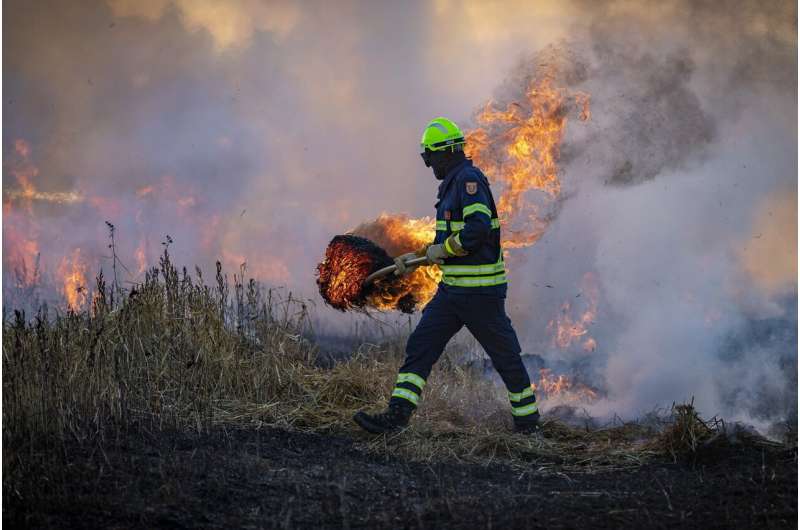
Source: Pixabay/CC0 Public Domain
Researchers from the University of California, Irvine, have public health researchers published a study in the journal Environmental Health Research highlighting the combined effects of frequent wildfires and smoke exposure on physical and mental health, the local economy, and community resilience in Southern California.
Through detailed focus groups and surveys in four affected areas — Thermal, Mecca, Oasis and North Shore — in the eastern Coachella Valley, the work provides a comprehensive look at the personal and collective toll these disasters take on residents, said corresponding author Suellen Hopfer, associate professor of health, society and behavior in UC Irvine’s Joe C. Wen School of Population & Public Health.
The Eastern Coachella Valley is a desert ecosystem in Riverside County with increasing invasive grasslands coupled with extreme heat that often causes wildfires. The Hispanic population is well established in the valley, with an estimated 92% of the residents originating from Latin American countries (primarily Mexico). Agriculture and construction are the major industries and employers in this region.
Between February and April 2023, Hopfer and her team collected and analyzed the personal stories of 118 valley residents about evacuations, health impacts, and disruptions to daily life caused by fires and smoke. Their findings are among the few that contribute to the literature on how poor, marginalized communities can respond to and protect themselves from wildfire threats. They also highlight the strength and resilience of the people who fight these circumstances.
Residents shared with researchers stories of physical health problems caused by wildfire smoke. Respiratory problems, sinus problems and eye irritation were common, especially among children, the elderly and those with pre-existing conditions. Equally important were the mental health effects.
Living with persistent smoke and extreme heat, children unable to go outside, and family members working in extreme heat and smoke resulted in constant psychological stress, fear, and anxiety. These psychological stressors were exacerbated by the constant possibility of dangerous wildfires.
“This report was made possible by the families and residents of the eastern Coachella Valley who shared their experiences with fires and their impacts with our research team,” said Hopfer, who holds a joint appointment in pediatrics. “Through our community-academic partnership, our findings can serve as a critical resource for policymakers, emergency response teams, and public health officials seeking to develop more effective support systems to protect the populations most vulnerable to ECV.”
The findings, she added, underscore the urgent need for improved emergency preparedness and resources. Residents called for better communication channels, affordable waste services to reduce fire risks and tailored fire prevention education in Spanish. The study also highlights the importance of community interaction in mitigating wildfires, Hopfer said, with neighbors playing a critical role in alerting and helping each other during emergencies.
Other authors included Anqi Jiao and Mengyi Li, doctoral students at UC Irvine, as well as Jun Wu, professor of environmental and occupational health in the Joe C. Wen School of Population & Public Health, and Anna Lisa Vargas of Communities for a New California Education Fund.
More information:
Suellen Hopfer et al, Repeated experiences with wildfires and smoke shared by four Southern California communities: local impacts and community needs, Environmental Research: Health (2024). DOI file: 10.1088/2752-5309/ad6209
Quote: Southern California study reveals health effects of repeated wildfires, smoke exposure (August 28, 2024) Retrieved August 28, 2024 from https://medicalxpress.com/news/2024-08-based-southern-california-reveals-health.html
This document is subject to copyright. Except for fair dealing for private study or research, no part may be reproduced without written permission. The contents are supplied for information purposes only.
 Healthy Famz Healthy Family News essential tips for a healthy family. Explore practical advice to keep your family happy and healthy.
Healthy Famz Healthy Family News essential tips for a healthy family. Explore practical advice to keep your family happy and healthy.


